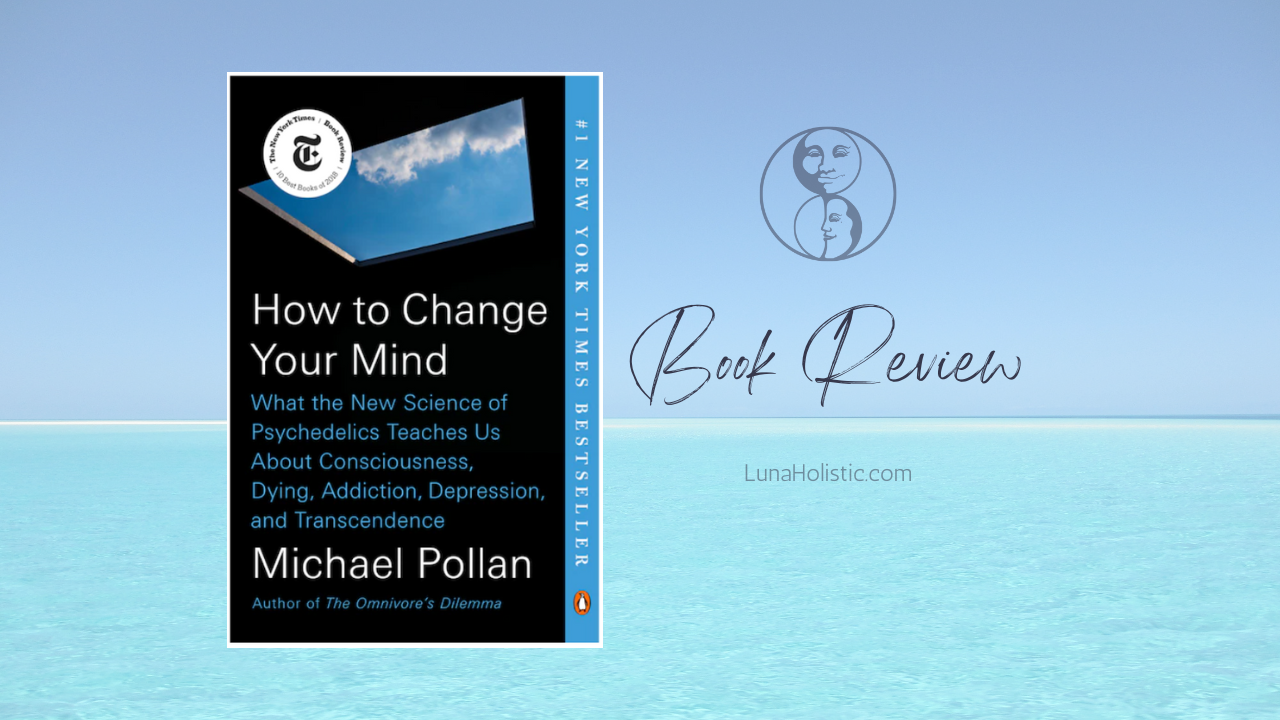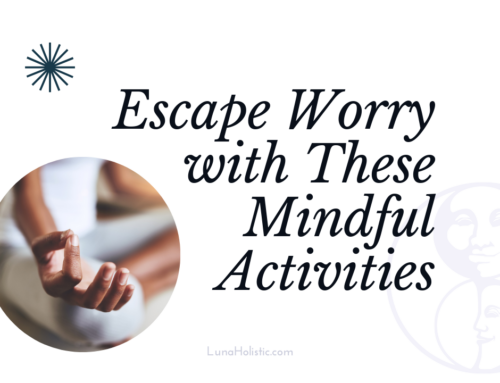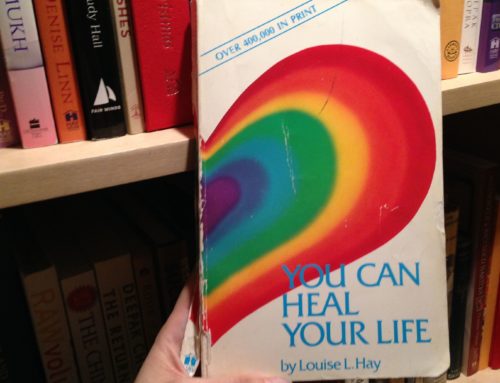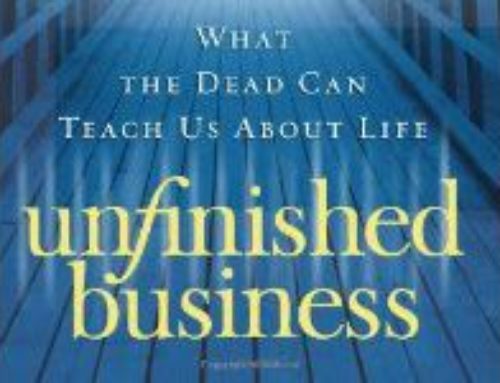‘How to Change Your Mind: What the New Science of Psychedelics Teaches Us About Consciousness, Dying, Addiction, Depression, and Transcendence‘ by Michael Pollan is a fascinating read. And, as the title suggests, it did change my mind about the remarkable healing qualities of psychedelics in therapy. These chemicals found in nature have a way of opening up a mystical experience for a person, and with a capable guide, therapist, or shaman, and in an appropriate setting, deep healing experiences can happen with little to no side effects.
Before reading this book, I admit that I did have a few old biases against psychedelics. But learning more about the biology of how these substances work, the emerging scientific studies in therapy, and some of the smear campaigns that were part of the history of psychedelics in our culture, I found that many of my preconceived notions were simply false. It turns out that psychedelics have very low toxicity and are not habit-forming in the usual sense of addiction behaviour. This was new information for me and is very well presented in Michael Pollan’s articulate book.
How to Change your Mind
In the book, Pollan explores the world of psychedelics and their potential to change our lives for the better. He interviews scientists, researchers, and regular people who have had profound experiences with psychedelics like LSD, psilocybin, and ayahuasca. He explores the history and science of psychedelics and draws on his own experience with these substances to illustrate their potential for promoting healing and consciousness expansion.
Psychedelics have been used for centuries, and recent research has shown that they can be effective in treating a variety of mental health conditions. Psychedelics work by altering the brain’s chemistry, and this can lead to changes in perception, mood, and thought. While there are some risks associated with their use, psychedelics offer the potential for significant therapeutic benefits.
Super cool Brain stuff!
A very cool part of this book for me was the description of how psychedelics slow down the default mode network in the brain. Allow me to nerd out a bit. This book has a fascinating exploration of how substances like LSD and psilocybin affect brain functioning.
My very short version is that it seems that psychedelics temporarily suppress the activity of the default mode network in the brain, which is essentially the part that houses our ego. The default mode network is “…the place where our minds go to wander – to daydream, ruminate, travel in time, reflect on ourselves, and worry,” says Pollan.
“…when our subjective “I” disintegrates, as it often does in a high-dose psychedelic experience (as well in meditation by experienced meditators), it becomes impossible to distinguish between what is subjectively and objectively true. What is left to do the doubting if not your I?” ~ Michael Pollan, How to Change Your Mind
This is interesting in that Buddhism also instructs that the primary cause of unhappiness is an unruly mind that is clinging to itself. And that states of true happiness, joy, equanimity and contentment become possible when we manage the mind and disarm the ego through contemplation on compassion and loving-kindness. Thinking about how we can help others helps us to lose our sense of ‘self,’ and in this state, you are free.
The Psychedelic Experience is a Mystical Experience
Michael Pollan explores the history and science of psychedelics in this book and in a new Netflix documentary: How to Change Your Mind. These substances have been used for centuries in religious and spiritual rites. The use of substances found in nature to induce a spiritual experience is not new. It wasn’t invented in the sixties! Psychedelics have been part of many ancient spiritual traditions as a way to gain insight into how to lead a connected and peaceful life.
“…the feeling of ineffability, the conviction that some profound objective truth has been disclosed to you is a hallmark of the mystical experience…” ~ Michael Pollan, How to Change Your Mind
The Mystical Experience and Reiki
The most remarkable part of reading the book for me was how closely the description of the mystical experience parallels the experience in a Reiki session. As I read the book, I saw many places similar to my own experiences in Reiki. It seems that there are many doorways to the mystical. Readin this book contributed to my understanding of the deeply spiritual place that Reiki and psychedelics can bring people.
“The mystical experience may just be what it feels like when you deactivate the brain’s default mode network.” ~ Michael Pollan
It is clear to me how similar psychedelic-assisted therapy seems to be to Reiki Sessions. We hold open a spiritual doorway for people to get greater answers that profoundly help them. Just with Reiki alone, no chemicals required.
Microdosing on the Universe
I’d love to be part of a brain scan study to see if Reiki does affect the default mode network. But until then, my working theory is that Reiki is microdosing on the universal life force energy and helps us connect to something greater than our limited worldview when the ego is engaged. We chat about this and more in our podcast.
A huge benefit of the psychedelic experience is that it can connect you to that spiritual and mystical experience. And Reiki can help you integrate those experiences and maintain the connection, similar to meditation.
“A brief daily meditation had become a way for me to stay in touch with the kind of thinking I’d discovered on psychedelics. I discovered my trips had made it easier for me to drop into a mentally quiet place, something that in the past always eluded me.” ~ Michael Pollan
Psychedelics have a long and controversial history, but they may also hold the key to treating conditions like addiction, depression, anxiety, and PTSD. With insights from some of the world’s leading scientists, ‘How to Change Your Mind’ is a must-read for anyone interested in the power of psychedelics to heal and transform our lives.





Leave A Comment